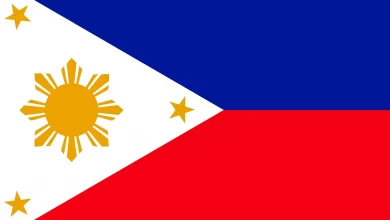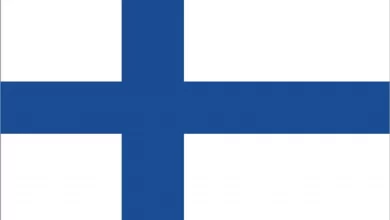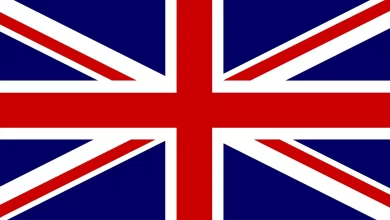Austria is a small country in Central Europe known for its breathtaking mountain scenery. The country’s western, southern, and central regions are dominated by the Alps and their foothills. A large portion of the land is covered by broad green valleys, beautiful mirror lakes, and dense forest. Austria has a population of approximately 7 million people. Most Austrians prefer to live in the country’s lower east and just south of the Danube River. Vienna, Austria’s capital and largest city, is home to more than one and a half million people. Graz and Innsbruck are two other cities with populations of over 100,000 people. Austrians dislike being labeled as Germans, even though the country is predominantly Germanic in terms of language and ethnicity.
- The country’s full name is the Republic of Austria or Republik Österreich in german.
- Austria is a landlocked nation with an estimated 8.95 million people in Central Europe. It is divided by Europe’s Czech Republic and Germany to the north, Slovakia and Hungary to the east, Slovenia and Italy to the south, along Switzerland and Liechtenstein to the west.
- It is a commonplace for Austrians to claim that Hitler was, in fact, a German, whereas Beethoven was an Austrian.
- The world’s oldest known salt mine, which has been producing salt for 7,000 years, is situated in the mountain high above the village of Hallstatt in the Salzkammergut region of Upper Austria.
- According to an estimate of 2018, people living in Austria are 80.8% Austrian, 2.6% of the total population is of german ethnicity, Bosnian and Herzegovinian are 1.9%, Turkish are 1.8%, Serbian are 1.6%, Romanian is 1.3% and other 10%.
- About 60% of Austrian territory is mountainous and is part of the Eastern Alps.
- Werfen’s “Eisriesenwelt” is the largest ice cave in the world. The cave system stretches more than 42 kilometers in the mountains.
- Austria is at the top of the heap in regards to recycling waste. This country has the highest recycling rate out of all countries in the world. Over 63 percent of waste is recycled and removed from landfills.
- The Grossglockner, Also known as Glockner Grossglockner, is the highest peak (12,460 feet or 3,798 meters) in Austria and the Hohe Tauern (range of the Eastern Alps). It is situated on the frontier between Bundeslander Tirol and Karnten, which are federal states in Austria.
- According to UN FAO, Around 47.1% or about 3,887,000 ha of Austria land is forested.
- Austrians have a deep love for winter sports, such as skiing, alpine, and hockey on ice; however, they appreciate sports like football, rugby, and soccer. Austria produces some of the most talented alpine skiers of the world, including Toni Sailer, Hermann Maier, and Annemarie Mozer-Proll.
- The Austrian flag is considered to be one of the most ancient national symbols that is still used by modern countries. The first time its use was recorded in 1230. The Austrian triband was derived out of arms belonging to the Babenberg Dynasty.
- The world’s first postcard was issued 150 years ago, in 1869, by Austria. This was a simple, blank, light-brown card (8.5cm x 12cm), with space for a message, the address, and an officially imprinted stamp on the other side. This was how the first postcard looked like, and it was for half the price of a standard letter.
- Austria Became a member of the European Union On January 1, 1995.
- Dietrich Mateschitz founded Red Bull in Austria in 1984. Red Bull Energy Drink was introduced in Austria on April 1, 1987. Energy Drinks were born as a new product category!
- In 2019 and 2020, Vienna was awarded as the most liveable city in the world. However, in 2021 the crown for the most liveable city was taken by New Zealand‘s Auckland.
- The Oldest Zoo in the world that you can still visit is in Vienna. The name of the zoo is Tiergarten Schönbrunn, and was began in 1752 as a royal menagerie.
- Baroness Bertha von Suttner was the first woman to be awarded the Peace Prize and was from Austria. She wrote one of the most influential books of the nineteenth century, the anti-war novel “Lay Down Your Arms.”
- Austria is a nuclear-free country; when a nuclear power station was built in Zwentendorf, Austria, in the 1970s, it was halted by a popular vote in 1978. The completed power plant is now being marketed as a film and television shooting location.
- The Four Powers (the United States, the United Kingdom, France, and the Soviet Union) signed the Austrian State Treaty in Vienna on May 15, 1955, effectively ending the four-power occupation and establishing Austria as a free, independent, and neutral state.
- The Peter Stiftskulinarium in Salzburg, Austria, is Europe’s oldest restaurant founded in 803 CE. It is also regarded as the world’s oldest restaurant. The restaurant, housed within St. Peter’s Abbey, has been serving Austrian cuisine for over 1,200 years.
- Austria is known as Europe’s “organic farming country number one.” Based on the findings of the famous Austrian researcher and anthroposophist Rudolf Steiner, Austria registered the first organic farm to the world in the year 1927.
Quick Facts about Austria
- CAPITAL CITY: Vienna
- POPULATION: 89.2 lakhs (2020)
- POPULATION RANK: 134th
- LARGEST CITY: Vienna
- OFFICIAL LANGUAGES: German
- GDP NOMINAL: 42,896.54 crores USD (2020)
- GDP RANK: 26th
- CURRENCY: Euro
- FOUNDED: 27 July 1955
- FATHER OF THE NATION: Franz Joseph
- TOTAL AREA: 183,879 km2
- AREA RANK: 113th worldwide
- CONTINENT: Europe
- AVERAGE LIFE EXPECTANCY: 81.79 years
- ARMY STRENGTH: 21,000 – 25,000 personnel
- ARMY RANK: 59th
- LITERACY RATE: 99.00%
- PER CAPITA INCOME: 58,940 PPP dollars (2019)
References
- Indexmundi.com (Austria Demographics)
- Bmeia.gv.at (Mountain percentage in Austria)
- Rainforests.mongabay.com (Forest land area in Austria)
- Wikipedia-Flag Of Austria
- Australiapostcollectables.com.au (The first Postcard)
- Cs.mcgill.ca
- Redbull.com (Where RedBull Energy drink Originated)
- Wikipedia.org (Global Livebaility Ranking)
- Tiqets.com (The oldest Zoo In the world)
- Nobelprize.org (First Women in the world to get Nobel Peace Price)
- Wikipedia.org (Austria as Nuclear Free Country)
- history.state.gov ( The four Powers use to govern austria before indepence)
- Insider.com
- Tasteofaustria.org (First Country to Use organic farming)






